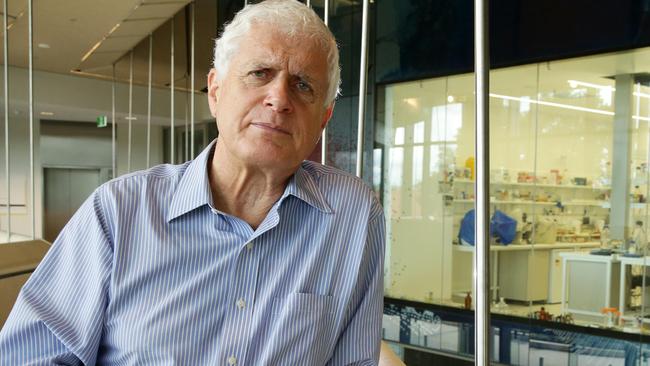‘Don’t feel guilty’: Gene research takes the stigma out of eating disorders
A week after the death of Jaimi Kenny, Sophie Gregor has chosen to speak out about her anorexia nervosa to fight the stigma she believes still surrounds eating disorders and to promote world-first research in Queensland
QLD News
Don't miss out on the headlines from QLD News. Followed categories will be added to My News.
After spending years in and out of hospital being treated for anorexia nervosa, Sophie Gregor is preparing to return to university next year to study primary school teaching.
But although the 21-year-old is finally in a better place three years after being diagnosed with an eating disorder, she still has problems with her heart and other physical effects from the devastating illness that need to be “monitored closely”.
QLD SCIENTISTS HELP IDENTIFY EATING DISORDER GENES
GENES LINKED TO SELF-HARM IDENTIFIED

A week after the death of Jaimi Kenny, Sophie has chosen to speak out about her anorexia nervosa to fight the stigma she believes still surrounds eating disorders and to promote world-first research in Queensland, which is showing genes are involved, just as they are with many other illnesses.
“A lot of people think that people with eating disorders choose it, that they want to be that way,” she said. “It’s different to other illnesses where there’s clear evidence, like a blood test or a tumour or something, that you have it.”

Sophie has taken part in a study at QIMR Berghofer Medical Research Institute looking into the genetics of eating disorders, hoping that one day doctors may be able to predict a person’s risk early in life so that preventive measures could be put in place.
“Eating disorders have a really high mortality rate and I think people need to realise they destroy people’s lives and there needs to be a lot more awareness raised,” she said. “I think this research is going to help a lot.”
Knowing more about the genetics may allow scientists to find targeted drug treatments.
But respected QIMR Berghofer geneticist Nicholas Martin said a much more immediate goal was getting the message out that: “Hey, yes, it’s a terrible condition, but don’t feel guilty. It’s genetic just like diabetes is genetic.”

In an era when social media is placing increased pressure on people to look a certain way, Professor Martin said decades of family and twin studies showed eating disorders were about 60 per cent genetic.
“Social media may trigger, or worsen eating disorders but we believe this happens only in people who already have a genetic vulnerability,” he said. “There are many thousands of people out there who experience the same media but do not get eating disorders.
“It’s also not clear whether those who blame social media might not have been triggered by other stimuli if social media were not available. After all, anorexia and bulimia existed long before social media was invented.”
Prof Martin played a key role in last year identifying the first eight genes associated with anorexia nervosa.
The international study, involving 17,000 people with the condition in five countries, identified as many genes associated with a person’s metabolism as those related to mental health issues, suggesting anorexia is as much a physical as it is a psychiatric disorder.
But Professor Martin said the researchers needed more people with eating disorders, including binge eating and bulimia, to take part in their research to uncover more of the genes involved.
“That should tell us what the neuro-chemical pathways are and provide targets for the pharmaceutical industry to develop better drugs,” Prof Martin said.
“The only drug treatments we’ve got at the moment are standard drugs used for depression or bipolar disorder, which are very non-specific and often unsatisfactory.”
Prof Martin said an estimated 150,000 Queenslanders were living with an eating disorder.
Australians aged from 13 years and older with a lived experience of anorexia, bulimia or binge eating are needed for his ongoing research.
They have to fill out an online survey and provide a saliva sample.
To take part: visit edgi.org.au or email edgi@qimrberghofer.edu.au
* For help: Phone Lifeline 13 11 14 or Butterfly Foundation: 1800 33 46 73

